When most Republican senators voted to acquit Donald Trump over his role in inciting the storming of the U.S. Capitol January 6, 2021, a common message was that the federal government should nevertheless focus on prosecuting those who had participated in the riot. But as Trump looks poised to pardon a large number of January 6 convicts and defendants, most of those same Republican senators are greeting those impending pardons with a shrug.
“The January 6 attack on the Capitol was horrific and appalling,” Sen. John Cornyn of Texas said in 2021. “Those who planned and participated in the violence that day should be prosecuted to the fullest extent of the law.” When asked last week in the Capitol if there are any categories of January 6 convicts who should not be pardoned, Cornyn told The Dispatch: “You know, that’s nothing that the Senate’s going to have anything to do with. That’s strictly up to the president.”
In 2021, Sen. Steve Daines of Montana said: “Going forward, the focus must be to arrest and prosecute the domestic terrorists who broke into our Capitol, attacked law enforcement officers, sought to cause harm, and tried to disrupt the peaceful transfer of power. They should be prosecuted to the fullest extent of the law.” But last week, Daines told The Dispatch: “I support what President Trump is going to do. I know he will very thoughtfully go through … everyone who was imprisoned, and I trust his judgment. I think he will do exactly the right thing.” Asked if those who committed violence should not be pardoned, he said: “Look, I trust President Trump’s judgment on this.”
And Sen. Kevin Cramer of North Dakota said just after the Capitol riot: “If I was in charge of security at the U.S. Capitol and some guy came in busting through the window, I would have put a bullet in his head and thrown him back out the window the other way to show the next person what would happen.” Cramer told The Dispatch in the Capitol last week: “I think with regard to anybody that was violent, you’ve got to take a person by person and case-by-case approach to it. Not all violence is the same.”
GOP senators aren’t the only ones singing a different tune on the January 6 rioters. Trump himself said on January 7, 2021: “The demonstrators who infiltrated the Capitol have defiled the seat of American democracy. To those who engaged in the acts of violence and destruction, you do not represent our country. And to those who broke the law, you will pay.” But on the campaign trail last year, he repeatedly pledged to issue pardons—and often played a song by the J6 Prison Choir composed of 20 inmates who had been charged over the Capitol riot.
The precise scope of Trump’s January 6 pardons remains unknown at the moment. “I’m going to do [pardons] case-by-case, and if they were non-violent, I think they’ve been greatly punished. And the answer is I will be doing that, yeah, I’m going to look if there’s some that really were out of control,” Trump told Time magazine after the election. And on January 11, Vice President-elect J.D. Vance said on Fox News Sunday: “If you committed violence on that day, obviously you shouldn’t be pardoned. And there’s a little bit of a gray area there.”
Comments from Trump and Vance have led many to believe that out of the nearly 1,600 people charged in connection with January 6, somewhere between 900 and 1,000 who faced only misdemeanor charges such as trespassing will be swiftly pardoned by Trump. “I expect a lot of free people walking shortly after Trump’s inauguration,” said Matthew Braynard of Look Ahead America, an organization advocating for pardons for January 6 convicts and defendants. “I expect about a thousand folks that were not even charged with violence, they will be pardoned almost immediately, based on what the administration said. Others may be reviewed more on a case by case basis.” Braynard said he couldn’t comment on whether he’s gotten any reassurances from the Trump team, but he eventually expects a “fairly comprehensive result.”
What remains unknown is how many of the convicts and defendants charged with more serious crimes will be pardoned. A Washington Post analysis from December separated those people into three categories: Thirteen people charged with seditious conspiracy for orchestrating the attack, at least 379 people charged with assaulting police or members of the media, and at least 287 people “charged with less violent or nonviolent felonies. Most of them have been charged with federal rioting, but many also have faced property destruction, theft, obstruction or firearms counts.”
If comments by Vance and Trump about violence are to be taken even slightly seriously, that would mean at the very least that a January 6 convict such as Peter Francis Stager, who was caught on tape beating a police officer with a flagpole on the Capitol steps, would not be pardoned. “That entire building is filled with treasonous traitors. Death is the only remedy for what’s in that building,” Stager said on videotape before the riot. “Every single one of those Capitol law enforcement officers, death is the remedy, that is the only remedy they get.” Stager pleaded guilty and was sentenced to 52 months in prison; he was released early in October.
Asked about what his group wanted to be done with January 6 convicts charged with shoving or beating police officers, Braynard said: “You should look at what someone is typically charged with a case like that … I’m confident that these guys were over-sentenced.” According to a Washington Post analysis, the “average sentence for someone convicted of assaulting police on Jan. 6 has been about four years … below national averages for that crime.” Scores of police officers were injured as they fought to keep rioters out of the Capitol building, with much of the fighting caught on videotape. Officer Brian Sicknick died of a stroke after the riot: The medical examiner ruled that Sicknick died of natural causes, but also said that “all that transpired played a role in his condition.” Four police officers who defended the Capitol later committed suicide.
“If President-Elect Trump overturns the convictions of individuals who were convicted by judges and juries or admitted guilt for crimes on January 6, he would undermine the U.S. judiciary and criminal justice system and send a message to Americans that attacking U.S. democratic institutions is appropriate and justifiable,” the Society for the Rule of Law, an organization of lawyers and judges who previously served in Republican administrations, said in a statement in December. “Even if President-Elect Trump pardons some people, he should absolutely not pardon or commute the sentences of any of the more than 500 individuals who have been charged with assaulting or interfering with law enforcement officials. This would be a grave insult to our law enforcement personnel.”
The pledge not to pardon those who had committed violence still leaves plenty of that “gray area” that Vance talked about. For example, Michael Bradley swung a baton at police officers and was sentenced to 60 months, but “video at his trial couldn’t conclusively prove whether he made contact,” a Wall Street Journal editorial reported. And there are those who received the stiffest sentences for orchestrating the attack, such as Proud Boys leader Enrique Tarrio, who was sentenced to 22 years in prison for seditious conspiracy and other charges. Tarrio was not physically present at the Capitol during the riot, but claimed credit for it: “Make no mistake . . . we did this,” he wrote on social media. Asked if he expected Tarrio to be pardoned, Braynard replied: “I don’t know.”
We’ll begin to find out just how sweeping the January 6 pardons are sometime after noon today, when the man most responsible of all for the events that transpired on January 6, 2021 is sworn in for a second term as president.
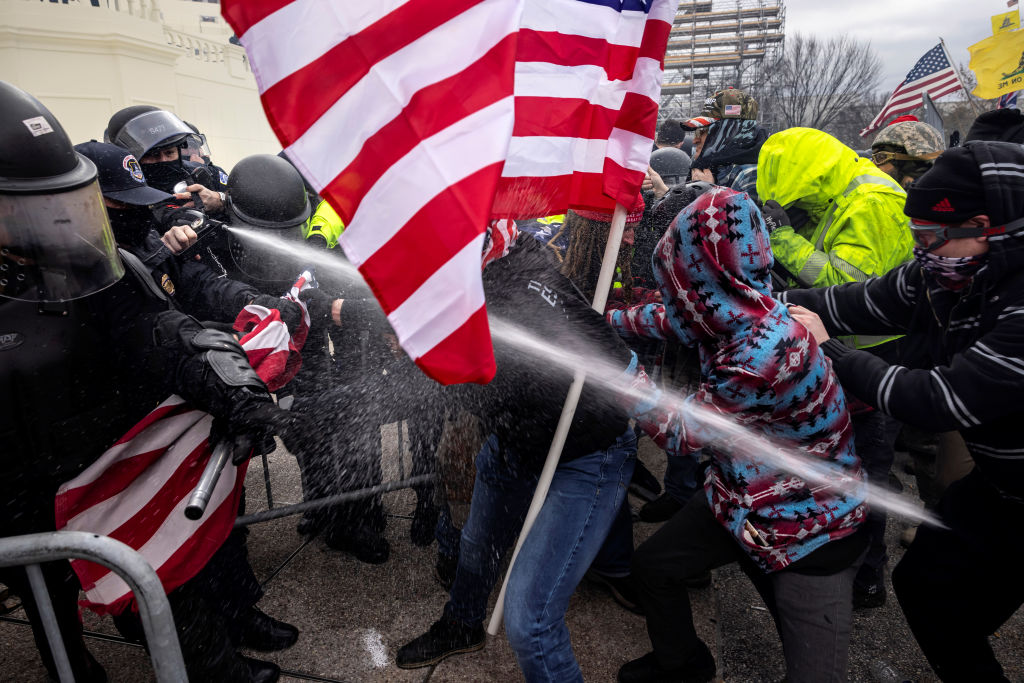

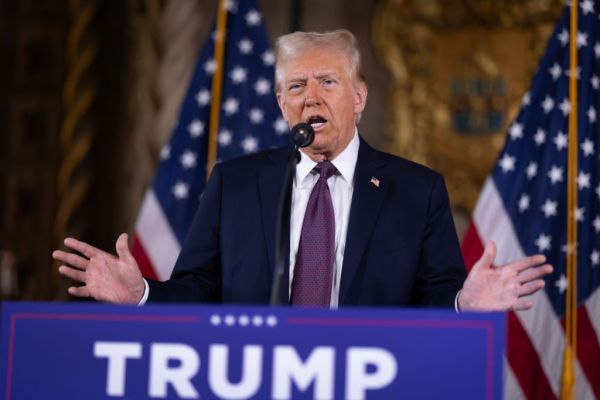
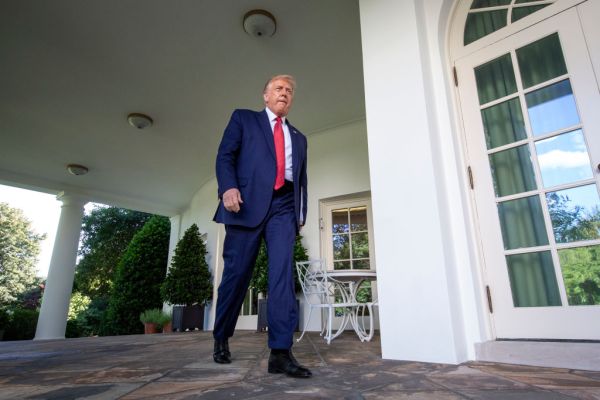
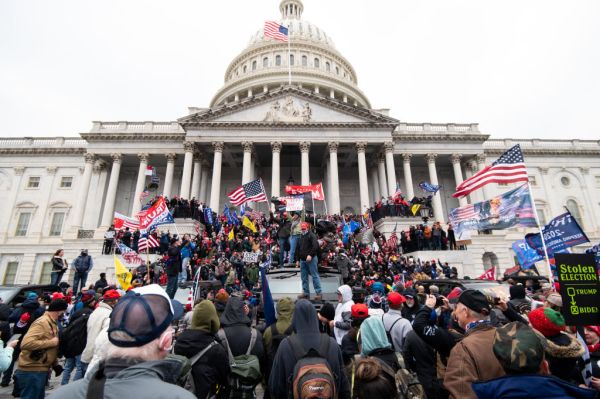

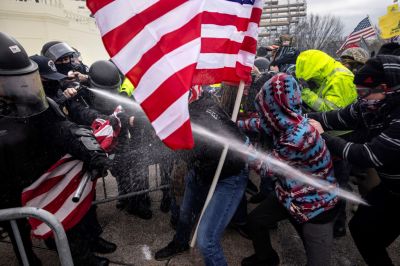
Please note that we at The Dispatch hold ourselves, our work, and our commenters to a higher standard than other places on the internet. We welcome comments that foster genuine debate or discussion—including comments critical of us or our work—but responses that include ad hominem attacks on fellow Dispatch members or are intended to stoke fear and anger may be moderated.
With your membership, you only have the ability to comment on The Morning Dispatch articles. Consider upgrading to join the conversation everywhere.